 More ancient civilization titles in the Explore Your World! Series
More ancient civilization titles in the Explore Your World! Series  Check out more titles at www.nomadpress.net Nomad Press A division of Nomad Communications 10 9 8 7 6 5 4 3 2 1 Copyright 2017 by Nomad Press. All rights reserved. No part of this book may be reproduced in any form without permission in writing from
Check out more titles at www.nomadpress.net Nomad Press A division of Nomad Communications 10 9 8 7 6 5 4 3 2 1 Copyright 2017 by Nomad Press. All rights reserved. No part of this book may be reproduced in any form without permission in writing from
the publisher, except by a reviewer who may quote brief passages in a review or for limited educational use . The trademark Nomad Press and the Nomad Press logo are trademarks of Nomad Communications, Inc. ISBN Softcover: 978-1-61930-611-0
ISBN Hardcover: 978-1-61930-607-3 Educational Consultant, Marla Conn Questions regarding the ordering of this book should be addressed to Nomad Press 2456 Christian St. White River Junction, VT 05001 www.nomadpress.net TIMELINE Historians divide Chinese history into blocks.
These blocks are called dynasties. A dynasty is named after the ruling family. C. 2070 TO 1600 BCE XIA DYNASTY
A man called Yu is said to have controlled a great flood. 1600 TO 1050 BCE SHANG DYNASTY
Chinese writing develops. 475 TO 221 BCE WARRING STATES PERIOD
Qin Shihuang starts the Chinese empire. 206 BCE TO 220 CE HAN DYNASTY
Buddhism reaches China. 220 TO 265 THREE KINGDOMS
Construction of long canals makes travel easier. 265 TO 618 PERIOD OF DISUNION
The Chinese experience innovations in poetry, calligraphy, and other arts. 618 TO 907 TANG DYNASTY
The golden age of art and learning begins. 907 TO 960 FIVE DYNASTIES PERIOD
Printing is done with wooden blocks. 960 TO 1279 SONG DYNASTY
Poetry, science, and mathematics flourish. 1279 TO 1368 YUAN DYNASTY
Mongol ruler Kublai Khan founds the Yuan dynasty. 1368 TO 1644 MING DYNASTY
The important novel, Journey to the West , is written. 1644 TO 1911 QING DYNASTY
Under the last imperial dynasty in China, the empire of the Manchus grows to include areas of Central Asia, Tibet, and Siberia. 1912
The Republic of China replaces the last dynasty. 1949
The Republic of China is defeated by the communist Peoples Liberation Army in the Chinese Civil War and retreats to Taiwan. 1949
The Republic of China is defeated by the communist Peoples Liberation Army in the Chinese Civil War and retreats to Taiwan.
The Communist Party establishes the Peoples Republic of China in Beijing. Note that many early dates are approximate. 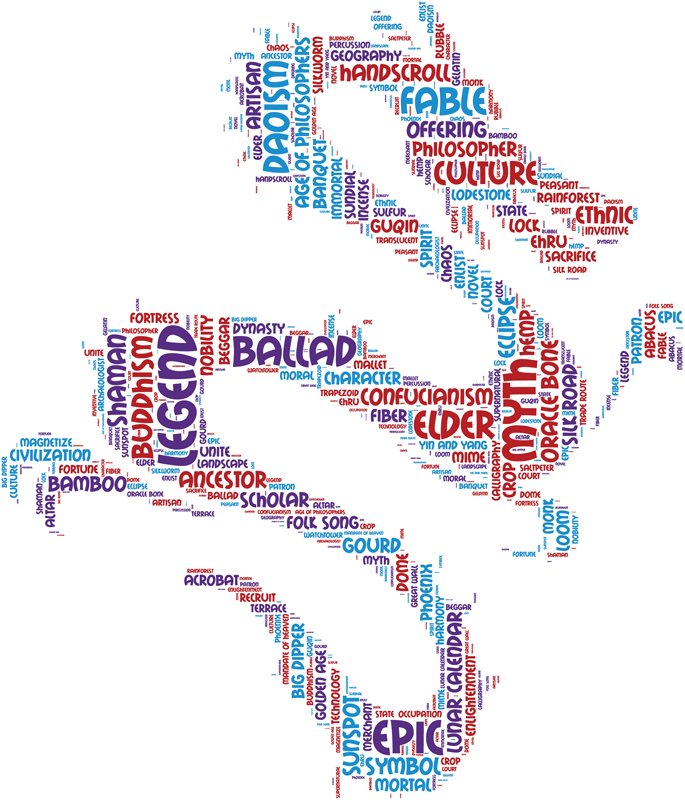
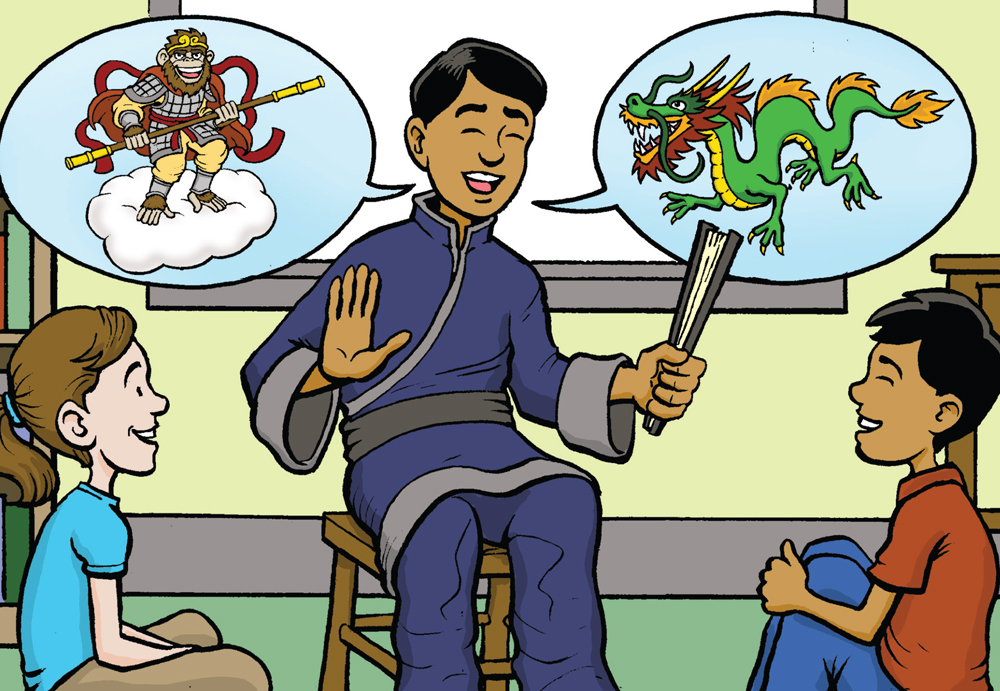 INTRODUCTION LETS EXPLORE CHINESE MYTHS! Storytelling is an important part of Chinese culture . People have been telling and listening to stories for thousands of years. The ancient Chinese told stories for the same reasons people do today. Stories are a way for people to learn about their history, and telling stories is fun! Originally, stories were spoken out loud.
INTRODUCTION LETS EXPLORE CHINESE MYTHS! Storytelling is an important part of Chinese culture . People have been telling and listening to stories for thousands of years. The ancient Chinese told stories for the same reasons people do today. Stories are a way for people to learn about their history, and telling stories is fun! Originally, stories were spoken out loud.
Each time a story was told, it changed slightly, because the storyteller was telling it from memory. WORDS TO KNOW culture: the way of life, including beliefs and customs, of a group of people. BCE: put after a date, BCE stands for Before Common Era and counts years down to zero. CE stands for Common Era and counts years up from zero. This book was published in 2017 CE. legend: a story set in the past that may or may not have really happened. fable: a short story that often contains a moral, or lesson. supernatural: beings, objects, or events that cannot be explained by science. ancestor: someone from your family or culture who lived before you. epic: a long poem that tells of the deeds of a legendary hero. epic: a long poem that tells of the deeds of a legendary hero.
Around the fifth century BCE , the Chinese began to write their stories down. These stories included myths , legends , and fables . MYTHS, LEGENDS, AND FABLES Myths are stories about supernatural beings. These stories tell of gods and goddesses, ghosts, and ancestors . One Chinese myth tells about the Monkey King, who was born from a stone egg. The Monkey King became the greatest warrior on Earth.
Once, he turned every hair on his body into a mini fighting monkey! After jumping into heaven, he went on more amazing adventures with his friends Pigsy, Water Monster, and the boy monk. Monkey and his friends are characters from a book called Journey to the West . The story was published by the writer Wu Chengen (15001580). Chengens work describes the epic adventures of the Monkey King and his friends. 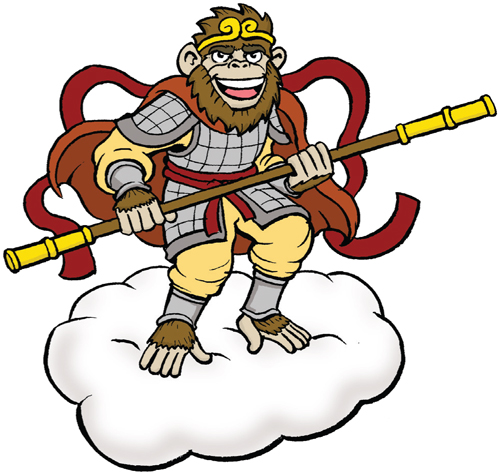 WORDS TO KNOW sacrifice: the killing of a person or animal as an offering to a god. offering: something that is given to worship a god.
WORDS TO KNOW sacrifice: the killing of a person or animal as an offering to a god. offering: something that is given to worship a god.
Myths also try to explain the natural world. The natural world is all around you. It is the air you breathe and the water you drink. Myths often answer questions about the weather, seasons, and how the world was made. One famous Chinese myth, called Tang the Conqueror, tells of a time when it did not rain for five years. Legends are stories from the past.
Some legends are about acts of strength and bravery. They tell of heroes who accomplish difficult tasks. Supernatural creatures, such as ghosts, demons, and dragons, often appear in legends. DID YOU KNOW? Professional storytelling was popular in ancient Chinese cities. Storytellers performed at festivals, in teahouses, and for royalty.
KNOW YOUR MYTHS! TANG THE CONQUEROR Tang the Conqueror looked out over his lands.
It had been years since the rains had come. Where once there had been grass, there was now dry earth. And his people had no food to eat and no water to drink. The king was greatly worried. He asked his priests what should be done. A great sacrifice is needed, the priests said.
The king, who was a kind ruler, would not sacrifice one of his people. He could not make that kind of offering . The king decided to offer himself to the gods. The priests placed the king on a woodpile and lit it. As the fire burned, the rain began to fall. novel: a made-up story that is the length of a book. novel: a made-up story that is the length of a book.
Legends can also be based on real events or people. It is often difficult to tell which parts of a legend are real and which are made up. Think about when someone reads a story to you. Would you tell the story the same way as you heard it? Your retelling might not be the same. This is because characters and story events appeal to people in different ways. People often remember a story in a different way when its time to retell it.
Have you seen the movie Mulan? Long before the Disney version, Mulans story was told in a folksong written during the fourth century CE. It tells of a brave girl. In the sixth century, Mulans story was recorded in a poem called The Ballad of Mulan . A ballad is a piece of writing that tells a story in rhyme. Much later, events from Mulans life were turned into a novel . 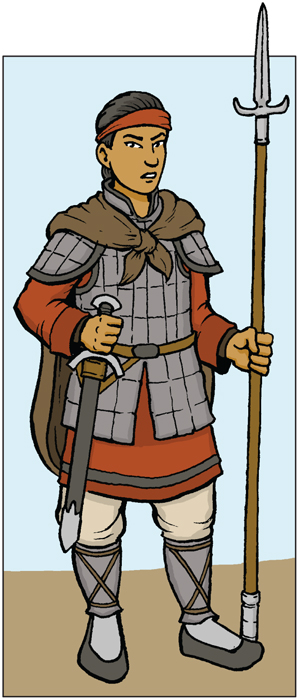

Next page
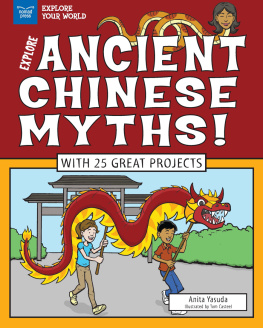





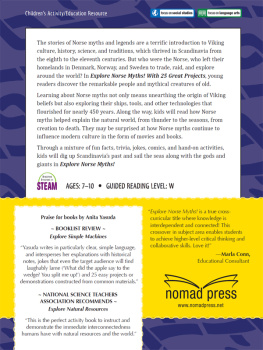
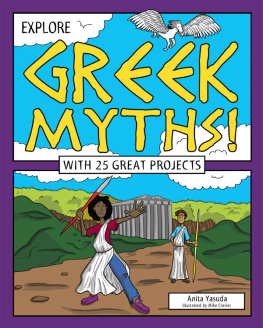
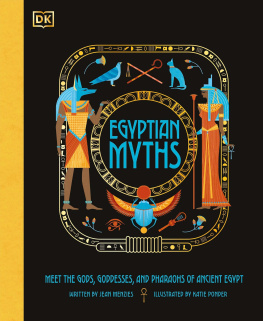
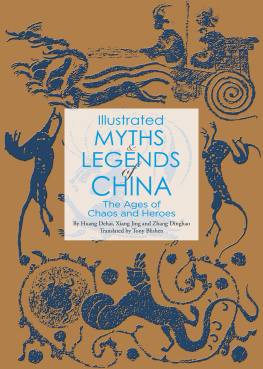
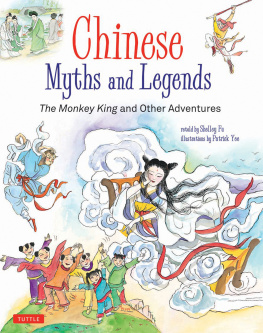
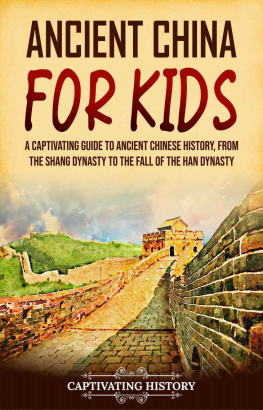

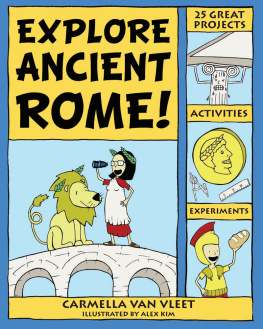
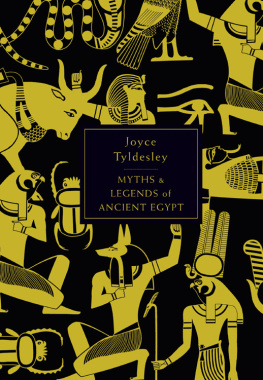
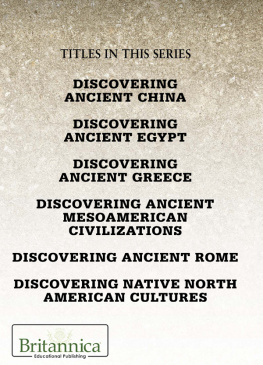
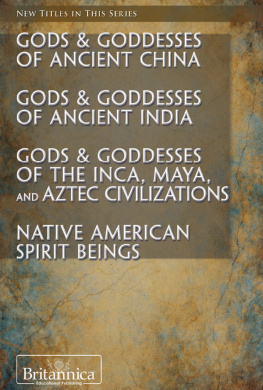
 More ancient civilization titles in the Explore Your World! Series
More ancient civilization titles in the Explore Your World! Series  Check out more titles at www.nomadpress.net Nomad Press A division of Nomad Communications 10 9 8 7 6 5 4 3 2 1 Copyright 2017 by Nomad Press. All rights reserved. No part of this book may be reproduced in any form without permission in writing from
Check out more titles at www.nomadpress.net Nomad Press A division of Nomad Communications 10 9 8 7 6 5 4 3 2 1 Copyright 2017 by Nomad Press. All rights reserved. No part of this book may be reproduced in any form without permission in writing from
 INTRODUCTION LETS EXPLORE CHINESE MYTHS! Storytelling is an important part of Chinese culture . People have been telling and listening to stories for thousands of years. The ancient Chinese told stories for the same reasons people do today. Stories are a way for people to learn about their history, and telling stories is fun! Originally, stories were spoken out loud.
INTRODUCTION LETS EXPLORE CHINESE MYTHS! Storytelling is an important part of Chinese culture . People have been telling and listening to stories for thousands of years. The ancient Chinese told stories for the same reasons people do today. Stories are a way for people to learn about their history, and telling stories is fun! Originally, stories were spoken out loud. WORDS TO KNOW sacrifice: the killing of a person or animal as an offering to a god. offering: something that is given to worship a god.
WORDS TO KNOW sacrifice: the killing of a person or animal as an offering to a god. offering: something that is given to worship a god.

